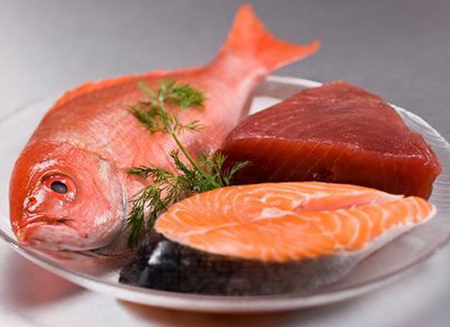
Previous research has linked eating more seafood to better
heart health, proper brain development, better mood, increased immunity—and one study even found a that kids who
eat more fish got better grades. But a new study has found that eating seafood
may make it easier to have those smart kids in the first place.
The study, published in The Journal Of Clinical Endocrinology and Metabolism
found that
couples who consume more fish on a weekly basis have a higher chance of getting
pregnant. Researchers are linking the benefit to "long chain omega-3 fatty
acids" specifically from marine sources, and find they are correlated with
higher markers of fertility in both men and women.

According to the NewYork Time, researchers followed 501 couples
planning pregnancy for up to a year. Couples kept a journal of their individual
seafood intake and their sexual intercourse frequency. Home pregnancy tests
were administered regularly. After a year, 92 percent of couples who ate fish
at least twice a week had become pregnant, while only 79 percent of couples who
ate less seafood had gotten pregnant.

The
study concluded that men who ate at least two servings of fish per week were
able to conceive 47 percent quicker, while women were 60 percent quicker to
conceive. When both partners consumed two servings of fish per week there was a
61 percent higher rate of pregnancy.
“Seafood
may help in semen quality, ovulation and other markers,” Audrey J. Gaskins, a
research associate at Harvard and lead author told the Times.
“Or maybe these couples are the ones spending more time together. But if it’s
fish that’s bringing them together, that’s still causal, although through a
behavioral pathway, not a biological one.”
In
addition to fertility, the couples where both partners consumed at least two
servings of fish per week had a 22 percent higher intercourse frequency. The
study still associated eating fish with pregnancy after controlling for
frequency of intercourse.











0 comments:
Post a Comment